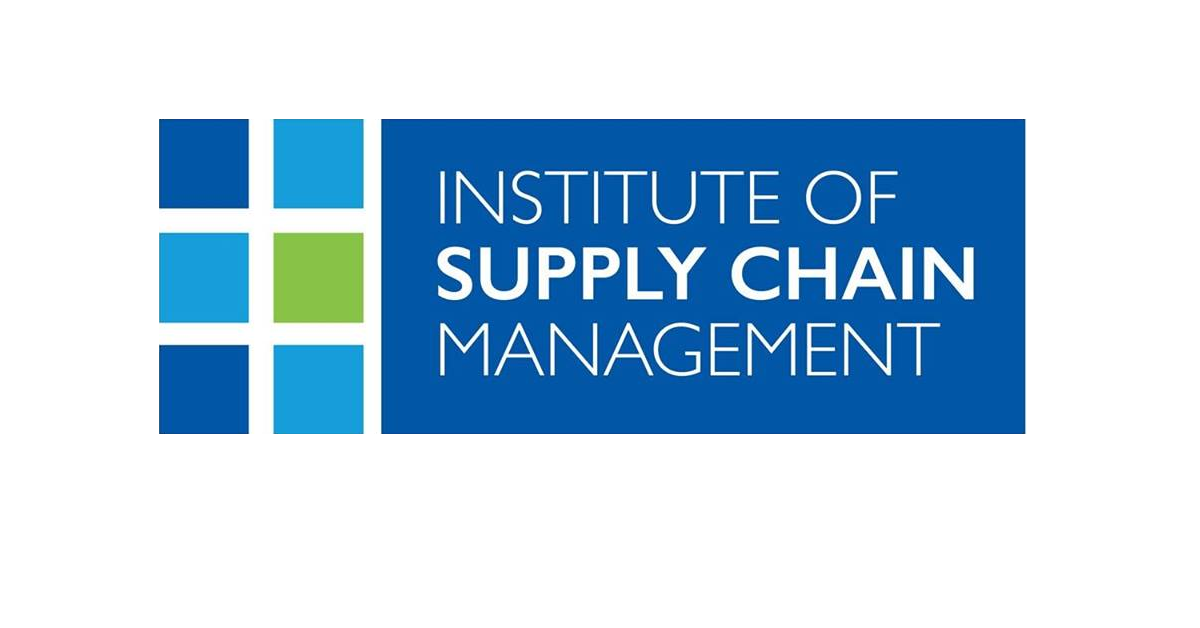
There is no escaping it. Everywhere you look, everything you read, everyone you speak to, in fact, every part of every day is currently affected by the Coronavirus. For many of us, the impacts of the global pandemic will likely be worse than the disease itself.
The supply chains of many modern businesses run on a global scale, with providers of raw materials, parts and products in every corner of the globe. Thanks to the increasing popularity of online shopping, customers are often based in different countries to those we operate in.
The way we do business, on a global scale, has been suddenly turned on its head. Countries have all but closed their borders, flights are grounded, and shipping vessels are stuck in port, in a bid to quell the infection from further spreading amongst their populations.
Home-grown products are once again becoming highly desirable, and industries like the agricultural sector are busier than ever as demand for their produce and product is through the roof. Undoubtedly this is some much needed good news during this period of uncertainty.
For companies with international supply chains, there is much work that needs to be done, and quickly, to source new, more local, suppliers. Much of the responsibility for finding and onboarding new providers will lie with the Procurement department. Supply Chains can not be established overnight. Time is needed to review the capabilities of a new supplier, with factors like quality, capabilities, costs, turnaround times and logistics a vitally important part of the selection process.
In the words of the UK Chancellor, Rishi Sunak “These are unprecedented times; we are dealing with a situation, the likes of which has never been seen before” (14th April 2020).
The likelihood is that during the pandemic, it is not feasible to carry out extensive checks as you would at regular times. Businesses are facing choices such as sacrificing service levels, accepting lower quality parts and products, paying higher costs per item, or halting production until such a time they can resume work with their regular suppliers.
In this issue of Supply Chain Outlook, we hear from three experienced Procurement Professionals about the impact COVID-19 is having on not only the Procurement industry but also the wider supply chain, and they share their insights into what the rest of 2020, and beyond, may have instore.
The first of our Expert panel is John Little, Head Procurement Tutor for The Network 360 Group. John has an extensive background in strategic Procurement, and now uses his knowledge of the industry to support learners at all stages of their professional development.
Relaxing the restrictions; Its time to shop local!
The COVID- 19 pandemic, along with Brexit, should release the “shackles” from the public sector to procure strategic items from the UK without going along with the EU procurement rules on tendering. Only with government guidance, of course; otherwise, I feel there is a risk public procurement teams will fall back into their old familiar ways. Within the private sector, I foresee a big push for “in-country” Procurement over the next 1-3 years. Once things settle down, there will be greater emphasis on cost savings, so outsourcing to other nations will again become the norm. Private industry will once again (in my opinion) move away from single-source suppliers to multiple suppliers with at least a 30% sourced within their our country for safety measures. I also see an increase, in the shorter term, in inventory levels within businesses, just in case the virus sparks up again. Overseas travel for business purposes will suffer a major blow as e-communicating will eliminate all but essential meetings/visits. The lockdown has shown us how this way of working can be effective, reduce costs and provide more sustainable ways to do business.
Small to medium enterprises within the UK could make a considerable contribution if they price their products accordingly. They will need to offer the buyer something different with locally sourced materials and labour, holding safety stock, reduced lead times and being able to manage their production with quick and efficient changeovers to suit customer demand.
All in all, the restrictions put in place to overcome the pandemic could be a great opportunity for certain types of organisations, especially those in the health business. Both manufacturers and distributors are likely to receive additional contracts in the coming months, as I expect governments will demand that there are never again failures in PPE provision. In recent times we have seen country to country struggling with health professionals dying needlessly due to lack of protection. A lesson will be learned by those responsible, and rightly so.

John Little, Head Procurement Tutor.
Procurement in the Pandemic
The next Expert member of our panel is Murray Ambler-Shattock. Murray is the Strategic Operations Manager for K M Plant Hire & Groundworks Limited. As well as a distinguished career in the industry, Murray has numerous professional recognitions, including qualifications, awards and certified status.
When we asked Murray how he thought Procurement was going to be affected by the Pandemic, not only did he come back to us with his predictions, he also reached out to a number of his colleagues from the wider supply chain and industry sectors. Here Murray shares with us their insights into what is happening;
Rishi Sunak has advised that a quarter of businesses have stopped trading and some four million employees are now furloughed, and that around two thirds of SMEs do not have access to enough resources to survive a prolonged lockdown. Indeed, some smaller and micro businesses are now already at a point, where they have exhausted all financial reserves, and at the end of April, will have crossed a financial rubicon, where they cannot see a way forward due to the absence of adequate and prompt enough financial aid. Some advise they are considering the perceived lesser-damaging outcome of letting their business fail, in order to restart again in hopefully better future times, rather than incur insurmountable debt, struggle and fail. Many cite the failure of CBILS to deliver a viable rescue solution as being the final straw. BBLS is welcome but may be too little, too late.
After speaking with many external colleagues, most advised their organisation had been forced to decrease production activity significantly due to the ongoing Covid-19 Pandemic situation. Roughly a quarter had now ceased working entirely and had already, or are about to, furlough a significant number of employees. This is a snapshot of what is happening in businesses, not just up and down the UK, but indeed, right across the globe.
A significant number (approximately two thirds) of my Procurement and Supply Chain Management contacts advise they believe the effect and impact of Covid-19 on businesses, in general, is becoming ever more severe. As a result, many organisations have autonomously lengthened payment terms to preserve cash flow, and around half have already completely suspended all payments to their suppliers to protect cash reserves.
Very few businesses have been able to sustain shortened payment times, and if they had initially undertaken this in response to Government advice, they have now ceased this due to them not experiencing prompt payments from their clients/customers. Where this has been undertaken and maintained, it has generally been to core/Directs or mission critical suppliers, rather than Indirects, and in response to usual terms being lifted and/or priority being given to cash paid orders over credit term orders. Suppliers have advised they can no longer provide any credit to anyone, as their Trade Credit Insurance has been rescinded, and unless a new customer pays upfront, they can’t fulfil supply. Indeed some are even seeking Director or personal guarantees for even trivial spend. Without doubt, suppliers of all sizes, will be severely restricted without the protection Trade Credit Insurance provides.
From those I have spoken with, a third have sourced alternative suppliers in response to the supply chain disruption. This can deliver new opportunities for suppliers to acquire new business, by providing goods and services unavailable from the previous supplier, thusly replacing them. Many are collaborating, or looking to collaborate, on buying activity and logistics to keep things moving. Some suppliers cannot get materials, and their clients are helping them with support on this, even in the form of payment assurances or guarantees.
Most supply chains are currently paying more or expect to pay more for materials, goods and services as a result of this crisis; commonly increases are around 15-20% across the board and a minority stomaching increases of up to 50% on niche products and services. Concerns of profiteering are abound, although often the supplier has themselves faced spiralling costs. If proven, that the supplier has behaved inappropriately in the present situation, the intention amongst some is to cease future dealings. Every action during these times, is a communication event, and sends a message out that will reverberate long after this crisis alleviates.
Much like the business I work for, many organisations have been forced to adapt and respond quickly to the rapidly evolving and everchanging situation during this crisis. A minority have elected to diversify into other goods and services in response to the Covid-19 PPE crisis, for example, and some confirm they have had to react and branch out just to remain in business. Some have been disappointed to learn there’s no apparent desire to take up their produced PPE.
Some larger firms have shuttered their payment departments, leaving an engaged tone on the ‘phone lines and auto-responder email replies and furloughed the personnel.
A number of suppliers seem to have simply closed up, in that they are uncontactable and non-responsive to existing customer enquiries. Their employees advise they have been furloughed, and therefore cannot deal with any enquiries, but are struggling themselves to contact anyone at the business to assist. This is leading to fear that despite being told they’ve been furloughed, in reality, they have been marshalled into a siding ready to be let go. There also seems to be many concerns relating to the furlough scheme, for both businesses and individuals, in terms of when such funds will arrive and if they will be paid in full or not.
There are many conversations taking place surrounding the support that is available for businesses, the unsuitability of CBILS and the hope that BBLS will prove more successful. There are many concerns about incurring debt in uncertain future trading conditions. Relationships with suppliers, finance providers, service providers, and insurance companies are becoming somewhat tense and indeed, completely breaking down in some cases. I am also aware of many instances in which payments to suppliers are being cancelled, without warning, with the business deciding to wait for the supplier to get in touch and then re-negotiating a better deal. Threats of Contractual Non-Performance Disputes and Legal Action, rejection of Force Majeure clause execution, declined Income Loss Insurance claims, etc., plus fears of a potential explosion in bad debt and credit terms defaults abound.
There is a consensus that we are expecting measures of some form to remain in place for several months, and businesses are preparing for the long haul. On a positive note, most of my Procurement contacts have confirmed they will be seeking to reward existing reliable suppliers and any alternative suppliers that have delivered in a crunch. They will also aim to retain those alternative suppliers that have come through for them in this crisis, as the preferred suppliers of the future, no doubt until price becomes the defining factor again. I am also taking this approach with the suppliers we are working with; to maintain and develop relationships and replacing uncooperative suppliers with more engaged ones. I am a great beliver in a fully engaged and collaborative Supply Chain partnership.
The collaboration efforts that are taking place now, may continue long after the effects of COVID-19 start to ease, as this is, in many ways, a catalyst for a sea change in thinking and a new era for a more intelligent and considered Procurement Strategy.
While I speak with a great number of professionals from across the wider Supply Chain, there are going to be businesses that have not faced the same challenges as others. I believe the diverse nature of the organisations I do speak with has allowed me a great insight into how COVID-19 is not only affecting Procurement, but also the more extensive supply chain.
Financial Risk Management will become an ever more crucial element in enabling businesses to trade safely and evaluate the risk of impending bad debt. In 2019, there was some £4.3 Billion of identified bad debt in the UK. Early economic modelling predictions suggest that as a result of Covid-19 impacts, this could double to over £8 Billion during 2020, and continue to increase through 2021 and 2022 before levelling off. The direct impact of this on any business in the UK should not be underestimated. If a supplying business is an unpaid Creditor at the point of that customer/client entering Administration, as a trend, they are 3 times more likely to file for Insolvency themselves in the subsequent 12 months. Therefore, it’s vital to not only seek available insurances against this risk (TCI) but to also indentify such risks early enough through accurate Fintel to mitigate your risk exposure through early identifcation of any triggers. On identifying the confirmed signals of financial distress, any provided credit terms can be reviewed, financial exposure can be reduced and managed, and liaison can commence for onward management of their account.
Responsible Risk Management, intelligent and agile Supply Chain Management, responsive collaborative interactions will be the wireframe around which better Procurement practices will be developed and implemented going forwards, and this can only be good for the profession.
The next few months are certainly going to be interesting for us all. I have no doubt that the Procurement sector is up for the challenge and will meet it admirably.

Murray Ambler-Shattock, Strategic Operations Manager.
The third member of our Expert Panel, is Andrew Clifton, a founding member of the IoSCM Advisory Council. Andrew has a well-established career in Procurement, often sharing his expertise and insights with the readers of Supply Chain Outlook.
A Force Majeure or Forced Mayhem?!
Due to the catastrophic impact of the coronavirus pandemic (formally named Covid-19 in February by the World Health Organisation,), it is a matter of fact, not conjecture, that in the space of just a few short months since the start of 2020, every organisation across the globe has, and still is experiencing, significant and consequential supply chain disruptions on an unprecedented scale that regrettably, even dwarfs the SARS coronavirus (SARS-CoV) outbreak of 2003.
Taking the UK as a prime example, from an infrastructural perspective, schools, factories, cinemas, hotels, pubs, clubs, sporting venues and all non-essential shops have all had to close. With millions of people in some form of isolation, movements of the general population have been greatly restricted, which has resulted in millions of jobs being at risk. The regrettable and painful loss of human life and those affected by such tragedies, coupled with the strain of health, military, emergency services and care workers trying to cope with the pandemic have ground day-to-day life to a halt.
So, how will procurement and supply chain professionals alike mitigate and try and manage supply chain disruptions in the scheme of such worldwide catastrophe?
Firstly, understanding the reality of your supply chain would be the apparent initial approach to quantifying disruption. This means analysing the supply chain way beyond your tier 1 supply base. Mapping the information against regions of the world most dramatically affected by the virus to the tier 2s, tier 3s even tier 4s and beyond. Having the measure of not only current inventory levels across the chain per se, but the location of such inventory and its logistics, taking into account port delays on perhaps penultimate points of shipping, and, of course, ultimate logistics to the points of where that inventory needs to be. In essence, door to door for each tier of the supply chain.
In these challenging times where procurement and supply chain professionals are trying to cope with supply and logistical issues, the last thing that you need is your supply chain trying to use contractual means to not deliver or fulfil their contractual obligations to you.
Typically, some (not all,) will invariably try and use the “force majeure”(act of God,) clause in the contract to do this.
Could force majeure be used to escape obligations based on Covid-19?
In essence, there’s no obvious answer to this, inasmuch that some supplier contracts will contain clauses incorporating phrases such as “public health risk, epidemic, pandemic, disease etc. or “matters beyond our control”.
Thus, initially, a point to be made is that “act of God” references are usually to be found within a force majeure clause, of which the operative words to note, are those references to “circumstances or events beyond reasonable control”.
This means references to “acts of God” are usually particular examples of “circumstances or events beyond reasonable control”. A well-drafted contract should make it clear that the specific examples used, do not detract from the generally used operative words within a force majeure clause.
To give this context, let’s take for example, what a typical force majeure clause should include:-
“… means any circumstance or event which is not within our reasonable control – including, without limitation:
(a) acts of God, flood, drought, earthquake or other natural disasters;
(b) public health risk, epidemic, pandemic or disease …”
Therefore, the intention of the words “without limitation” is constructed to ensure that the specific examples, which follow within the instances listed in the clause mentioned above, do not limit the general definition of a force majeure circumstance or event.
That won’t necessarily be the case for most supplier contracts, and as such, the courts would be unlikely to imply force majeure. However, it may be possible that the courts would allow a termination under the doctrines of “frustration of contract” in English law.
Typically, when a supplier is unable to supply as a consequence of a Covid-19 related situation, they will usually be liable for damages, unless of course, they can invoke and prove a force majeure clause in this instance.
In the scheme of things, other relevant events down the chain of causation are more likely to be related to the question; Can a supplier can rely on a force majeure clause in a particular contract, rather than the origin of the pandemic which set the wheels in motion. Or rather caused the wheels to stop!
From a cautionary perspective (as case law has yet to be tested on a Covid-19 force majeure case at this juncture), it would always be better to aim for an out of court amicable settlement with your supplier. This is especially true if you wish to preserve your supplier relationship, long after this pandemic crisis is over.

Andrew Clifton LLM, MCIPS, FSCM, Head of Procurement & Legal.

Thank you very much to our Expert Panel. The topics you have discussed have provided a fascinating insight in to the challenges the Procurement sector is facing, the fantastic work the industry is doing to support their own, and the broader, supply chain and how the pandemic is likely to reshape Procurement for the future.
